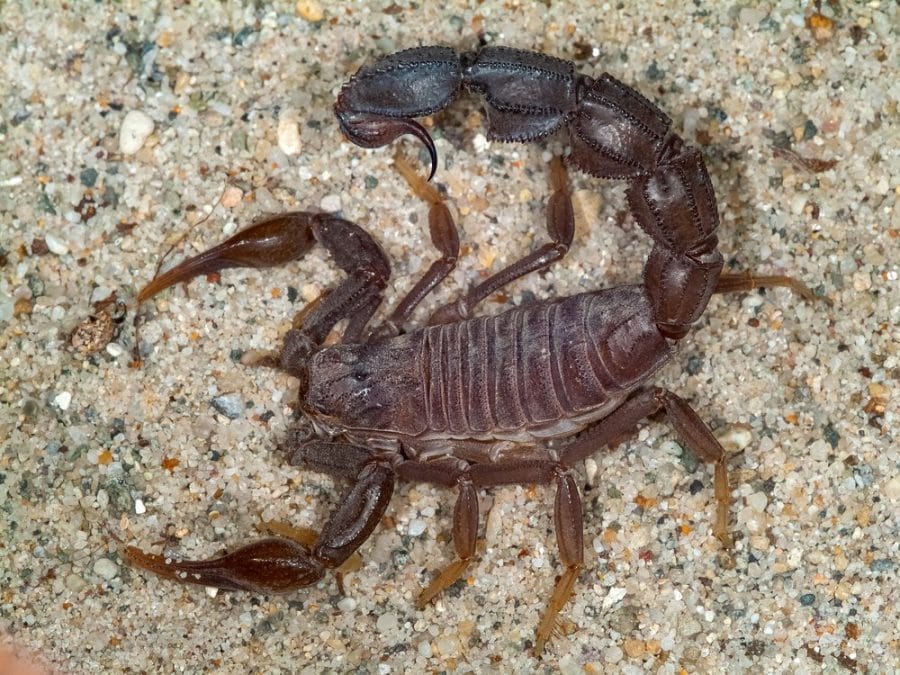Alright folks, let’s dive straight into the world of arachnids because today we’re talking about one of the most fascinating creatures on the planet: the scorpion. What powers does scorpion have? This question has intrigued scientists, adventurers, and even horror movie enthusiasts for decades. Scorpions are not just creepy crawlies; they’re survival machines equipped with some seriously impressive abilities. So, if you’ve ever wondered what makes scorpions so deadly, you’re in the right place. Let’s get started!
Scorpions have been around for over 430 million years, making them one of the oldest creatures on Earth. They’ve survived mass extinctions, climate changes, and everything in between. But it’s not just their longevity that makes them remarkable—it’s their arsenal of powers. From venomous stings to glowing under UV light, these creatures are full of surprises. If you’re ready to uncover the secrets of scorpion powers, buckle up because this is going to be wild.
Whether you’re a biologist, a nature lover, or just someone who’s curious about the creepy crawlies of the world, this article will give you all the info you need. We’ll cover everything from their venomous attacks to their ability to survive in extreme conditions. By the end of this, you’ll have a newfound respect for these ancient arachnids. So, without further ado, let’s talk scorpion powers!
Read also:Extrump Lawyer Backs Press Freedom A Bold Stand For Democracy
Table of Contents
- Scorpion Biography: A Quick Overview
- Venom: The Scorpion’s Deadliest Weapon
- Why Do Scorpions Glow Under UV Light?
- Extreme Survival Skills: How Scorpions Thrive in Harsh Conditions
- Senses on Steroids: Scorpion’s Sensory Abilities
- Longevity Secrets: How Long Do Scorpions Live?
- Types of Scorpion Venom
- Why Does Glowing Help Scorpions?
- Survival Tricks That Make Scorpions Unstoppable
- Detailed Breakdown of Scorpion Senses
- Wrapping It Up: Why Scorpions Deserve Respect
Scorpion Biography: A Quick Overview
Before we dive deep into the powers of scorpions, let’s take a moment to understand who these creatures really are. Scorpions belong to the class Arachnida, which also includes spiders, ticks, and mites. They’re not insects—they’re arachnids, meaning they have eight legs instead of six. Scorpions are found on every continent except Antarctica and can adapt to almost any environment, from deserts to rainforests.
Basic Scorpion Info
| Fact | Details |
|---|---|
| Scientific Name | Scorpiones |
| Number of Species | 2,000+ species |
| Size Range | 9 mm to 23 cm |
| Geographic Range | Every continent except Antarctica |
| Lifespan | 2 to 25 years depending on species |
Scorpions are nocturnal predators, meaning they hunt at night and hide during the day. Their bodies are divided into three parts: the cephalothorax (head), the mesosoma (abdomen), and the metasoma (tail). The tail is where the magic happens, as it houses the stinger filled with venom. But don’t worry, we’ll talk more about that later.
Venom: The Scorpion’s Deadliest Weapon
When most people think of scorpions, the first thing that comes to mind is venom. And for good reason—scorpion venom is one of the most powerful tools in the animal kingdom. But what exactly is venom, and how does it work? Let’s break it down.
Venom is a complex mixture of proteins and peptides that scorpions use to immobilize prey and defend themselves against predators. Depending on the species, scorpion venom can range from mildly irritating to deadly. In fact, out of the 2,000+ species of scorpions, only about 25-30 are considered dangerous to humans. But even the less dangerous species can pack a painful punch.
Types of Scorpion Venom
- Neurotoxic Venom: This type of venom attacks the nervous system, causing symptoms like muscle spasms, paralysis, and even respiratory failure. It’s the most dangerous type and is found in species like the Deathstalker scorpion.
- Cytotoxic Venom: This venom destroys cells and tissues, leading to swelling, pain, and sometimes necrosis. It’s less dangerous than neurotoxic venom but still painful.
- Hemotoxic Venom: This venom affects the blood and circulatory system, causing internal bleeding and organ damage. It’s rare in scorpions but can be deadly in large doses.
Interestingly, scorpion venom has potential medical applications. Scientists are studying it to develop treatments for cancer, pain management, and even heart disease. Who knew these little creatures could hold the key to saving lives?
Why Do Scorpions Glow Under UV Light?
One of the coolest things about scorpions is their ability to glow under ultraviolet (UV) light. If you’ve ever seen a scorpion under a blacklight, you know what I’m talking about. But why do they glow? Scientists aren’t 100% sure, but there are a few theories.
Read also:Antarctic Scientists Seek Rescue After Attack A Thrilling Tale Of Survival
Scorpions have a compound in their exoskeleton called beta-carboline, which reacts with UV light to produce a fluorescent glow. This glow is most noticeable in younger scorpions and fades as they age. Some researchers believe that scorpions use this glow to detect UV light, helping them navigate at night. Others think it might be a way to attract mates or deter predators.
Why Does Glowing Help Scorpions?
- Navigation: Scorpions are nocturnal, so they rely on other senses besides vision. The ability to detect UV light might help them find their way in the dark.
- Camouflage: In certain environments, the glow might help scorpions blend in with their surroundings, making them harder to spot.
- Communication: Some scientists speculate that glowing might play a role in mating rituals or social interactions between scorpions.
Whatever the reason, there’s no denying that scorpion glow is one of nature’s coolest tricks. And if you ever get the chance to see a scorpion under a blacklight, take it—you won’t regret it.
Extreme Survival Skills: How Scorpions Thrive in Harsh Conditions
Scorpions are survivors. They can live in some of the harshest environments on the planet, from scorching deserts to freezing mountains. But how do they do it? Let’s take a closer look at their survival skills.
One of the scorpion’s most impressive abilities is its ability to slow down its metabolism. When food is scarce, scorpions can enter a state of torpor, reducing their energy needs to almost nothing. This allows them to survive for months without eating. In fact, some species can go up to a year without food!
Survival Tricks That Make Scorpions Unstoppable
- Metabolic Flexibility: Scorpions can adjust their metabolism to match their environment, conserving energy when needed.
- Water Conservation: Scorpions have a waxy coating on their exoskeleton that prevents water loss, allowing them to survive in arid environments.
- Temperature Tolerance: Scorpions can withstand extreme temperatures, from blistering heat to freezing cold.
These survival skills have allowed scorpions to thrive for millions of years, adapting to changing environments and outlasting countless other species. They’re true masters of survival.
Senses on Steroids: Scorpion’s Sensory Abilities
Scorpions may not have great eyesight, but they make up for it with their other senses. They’re equipped with a range of sensory organs that allow them to detect prey, avoid predators, and navigate their environment with ease.
Scorpions have two types of eyes: median eyes and lateral eyes. The median eyes are located on the top of the head and are used to detect light and dark. The lateral eyes are located on the sides of the head and are used to detect movement. But it’s their other senses that really set them apart.
Detailed Breakdown of Scorpion Senses
- Pectines: These comb-like structures on the underside of the scorpion’s body are used to detect chemical signals in the environment, helping them find food and mates.
- Tactile Sensitivity: Scorpions have highly sensitive hairs on their bodies that can detect vibrations in the air and ground, allowing them to sense approaching predators or prey.
- Heat Detection: Scorpions can detect heat signatures, helping them locate warm-blooded prey in the dark.
With these super-senses, scorpions are able to hunt effectively and avoid danger, even in complete darkness. They’re true masters of their environment.
Longevity Secrets: How Long Do Scorpions Live?
Scorpions are known for their longevity, with some species living up to 25 years in the wild. But what contributes to their long lifespan? Let’s take a look at the factors that help scorpions live so long.
One of the reasons scorpions live so long is their slow metabolism. As we mentioned earlier, scorpions can slow down their metabolism to conserve energy, reducing the wear and tear on their bodies. They also have a hard exoskeleton that protects them from predators and environmental hazards.
Another factor is their ability to adapt to changing environments. Scorpions can survive in a wide range of conditions, from deserts to rainforests, allowing them to thrive in almost any habitat. And with their impressive survival skills, it’s no wonder they live so long.
Wrapping It Up: Why Scorpions Deserve Respect
So, there you have it—the incredible powers of scorpions. From their deadly venom to their glowing exoskeletons, these creatures are truly fascinating. They’ve survived for millions of years, adapting to changing environments and outlasting countless other species. And while they may seem scary to some, there’s no denying their importance in the ecosystem.
Scorpions play a vital role in controlling insect populations and maintaining the balance of nature. They’re also a valuable source of scientific research, with their venom holding potential medical applications. So, the next time you see a scorpion, take a moment to appreciate its power and resilience.
And if you’ve enjoyed this article, don’t forget to leave a comment or share it with your friends. Who knows, you might just inspire someone to appreciate these amazing creatures. Until next time, keep exploring the wonders of the natural world!


